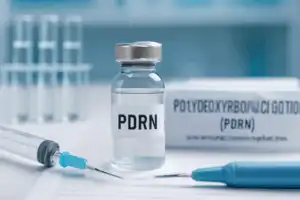Cancer is one of the leading causes of death globally, but the good news is that a significant number of cancer cases can be prevented through early lifestyle changes, healthy habits, and proactive monitoring. The focus of this article is on cancer prevention and the actionable steps you can take from an early stage in life to reduce your risk of developing cancer. While cancer prevention involves many factors, early intervention and awareness can go a long way in safeguarding your health.
1. Understanding Cancer and the Importance of Prevention
Cancer occurs when abnormal cells in the body start to grow uncontrollably, forming tumors or spreading to other parts of the body. The development of cancer is a complex process, often influenced by a combination of genetic, environmental, and lifestyle factors. While some cancer risk factors—such as genetics or age—are unavoidable, many can be controlled or minimized through preventive measures.
Cancer prevention is an important aspect of health care. By identifying risk factors early and adopting strategies to reduce exposure to those risks, you can help prevent the onset of many types of cancer, including lung, breast, colorectal, prostate, and skin cancer. With early action, many cancer types are detectable in their early stages, and treatment outcomes can improve significantly.
2. How to Prevent Cancer Early: Key Prevention Strategies
Preventing cancer is about making healthy choices and reducing exposure to known carcinogens—substances or agents that can cause cancer. Here are some essential steps you can take early in life to lower your cancer risk:
A. Stop Smoking and Avoid Tobacco Products
One of the most significant and well-established risk factors for many cancers is the use of tobacco. Smoking is linked to lung cancer, oral cancer, throat cancer, and even cancers of the bladder, kidney, and pancreas. Tobacco smoke contains over 7,000 chemicals, many of which are carcinogenic.
The first step in cancer prevention should be to avoid tobacco. If you are currently smoking, quitting is one of the most effective ways to reduce your risk of cancer. The sooner you quit, the better your chances of lowering your risk.
B. Adopt a Healthy Diet
A nutritious and balanced diet can play a crucial role in cancer prevention. Certain foods, such as fruits, vegetables, whole grains, and legumes, contain antioxidants, vitamins, and minerals that help protect your cells from cancer-causing damage. Here are a few dietary tips to help prevent cancer:
- Eat more plant-based foods: Vegetables like broccoli, kale, spinach, and tomatoes are rich in fiber and antioxidants that can reduce the risk of colorectal and other cancers.
- Limit processed foods and red meat: Excessive consumption of processed meats and red meat can increase your risk of colorectal and stomach cancers. Choose lean proteins, such as chicken or fish, and plant-based protein sources.
- Increase your intake of fiber: High-fiber foods, such as beans, lentils, and whole grains, are linked to a reduced risk of colorectal cancer.
- Limit alcohol consumption: Excessive alcohol consumption is associated with an increased risk of various cancers, including liver, breast, and colorectal cancers. Reducing alcohol intake can decrease your risk.
C. Maintain a Healthy Weight and Stay Physically Active
Obesity is a major risk factor for several types of cancer, including breast, colorectal, endometrial, and kidney cancers. Excess fat in the body can lead to inflammation and other conditions that promote cancer development. By maintaining a healthy weight, you can reduce your cancer risk.
Regular physical activity is equally important. Engaging in at least 150 minutes of moderate-intensity exercise per week can help control your weight and decrease your risk of cancer. Exercise also helps reduce inflammation and supports a healthy immune system, which can protect the body from abnormal cell growth.
D. Protect Your Skin from UV Radiation
Skin cancer, particularly melanoma, is one of the most common types of cancer, but it’s also one of the most preventable. The main cause of skin cancer is exposure to ultraviolet (UV) radiation from the sun or tanning beds. Over time, UV rays damage the skin, leading to mutations in the DNA of skin cells that can cause cancer.
To prevent skin cancer, follow these tips:
- Wear sunscreen: Apply broad-spectrum sunscreen with SPF 30 or higher every day, even on cloudy days.
- Seek shade: Avoid prolonged sun exposure, particularly during peak sunlight hours (10 a.m. to 4 p.m.).
- Wear protective clothing: Choose hats, sunglasses, and clothing with UV protection.
- Avoid tanning beds: Tanning beds increase your risk of developing skin cancer, especially in young people.
E. Get Regular Screenings and Early Detection
Cancer is more treatable when caught early. Screening tests are crucial for detecting cancer before symptoms appear, allowing for early intervention. Regular screenings are recommended for people based on age, gender, and personal or family history of certain cancers. Common cancer screenings include:
- Breast cancer screening (mammograms) for women over 40.
- Colorectal cancer screening (colonoscopy) for adults over 50 or earlier for those with a family history.
- Cervical cancer screening (Pap smears) for women.
- Prostate cancer screening (PSA test) for men, particularly those over 50.
- Skin checks to identify suspicious moles or growths that could indicate skin cancer.
Discuss with your doctor the appropriate screening tests for your age group and personal risk factors.
3. What Are 5 Ways to Prevent Cancer?
Here are five key strategies to help you reduce your risk of developing cancer:
- Quit smoking: Eliminate tobacco use to lower the risk of various cancers.
- Maintain a healthy diet: Focus on plant-based foods and limit processed meats and alcohol.
- Exercise regularly: Stay active and maintain a healthy weight.
- Protect your skin from UV radiation: Use sunscreen, wear protective clothing, and avoid tanning beds.
- Get regular screenings: Early detection is crucial in treating many types of cancer effectively.
4. What Are the Early Detection Strategies for Cancer?
Early detection is key to improving cancer survival rates. Regular screenings and paying attention to the early signs of cancer can help detect the disease before it spreads. Here are some early detection strategies:
- Self-examinations: Perform regular self-exams for breast, skin, and testicular cancer. Look for changes such as lumps, unusual growths, or changes in skin appearance.
- Scheduled screenings: Follow the recommended screening schedule based on your age and risk factors. For example, mammograms for breast cancer and colonoscopies for colorectal cancer.
- Know your family history: If you have a family history of cancer, discuss genetic testing with your doctor to assess your risk.
- Monitor unusual symptoms: If you notice unexplained weight loss, persistent cough, blood in urine or stool, or difficulty swallowing, seek medical attention promptly.
5. What Is the First Step in Cancer Prevention?
The first step in cancer prevention is adopting a healthy lifestyle. This includes avoiding tobacco, maintaining a balanced diet, staying physically active, limiting alcohol consumption, and protecting your skin from UV rays. In addition, regular medical check-ups and staying informed about screening recommendations will help you take proactive measures against cancer.









Be First to Comment